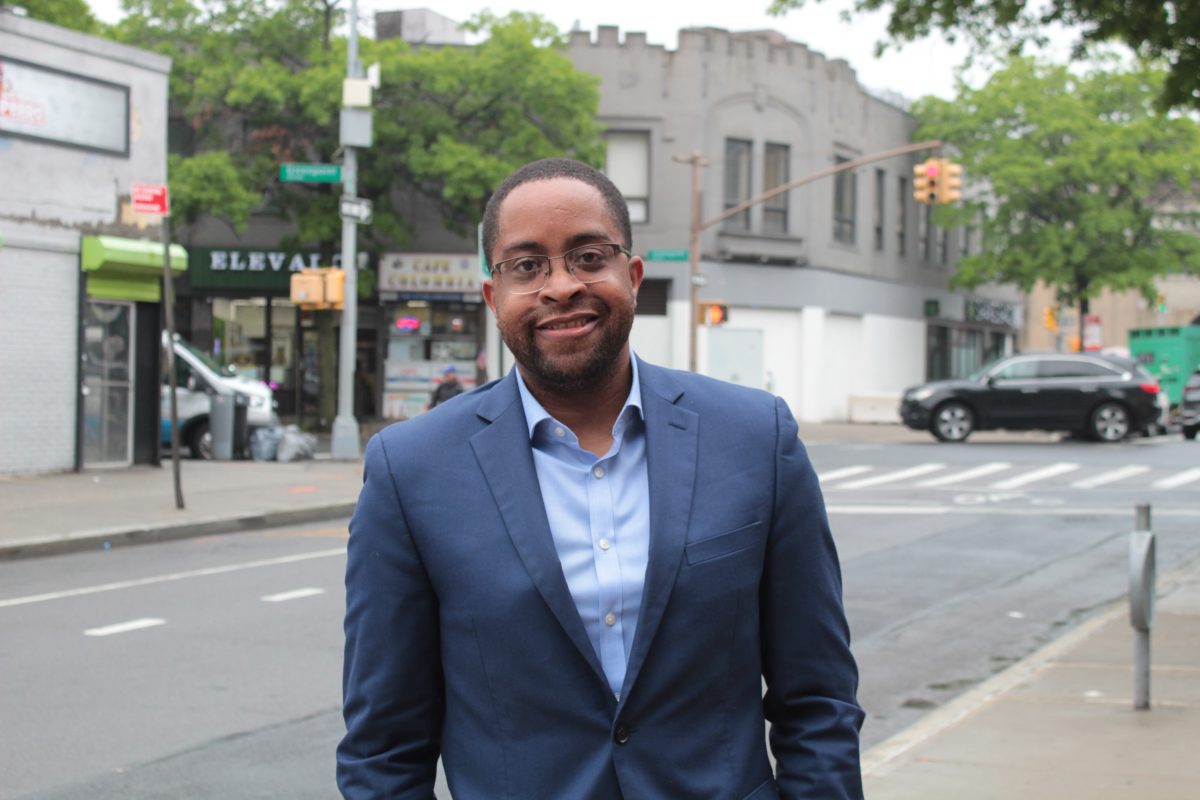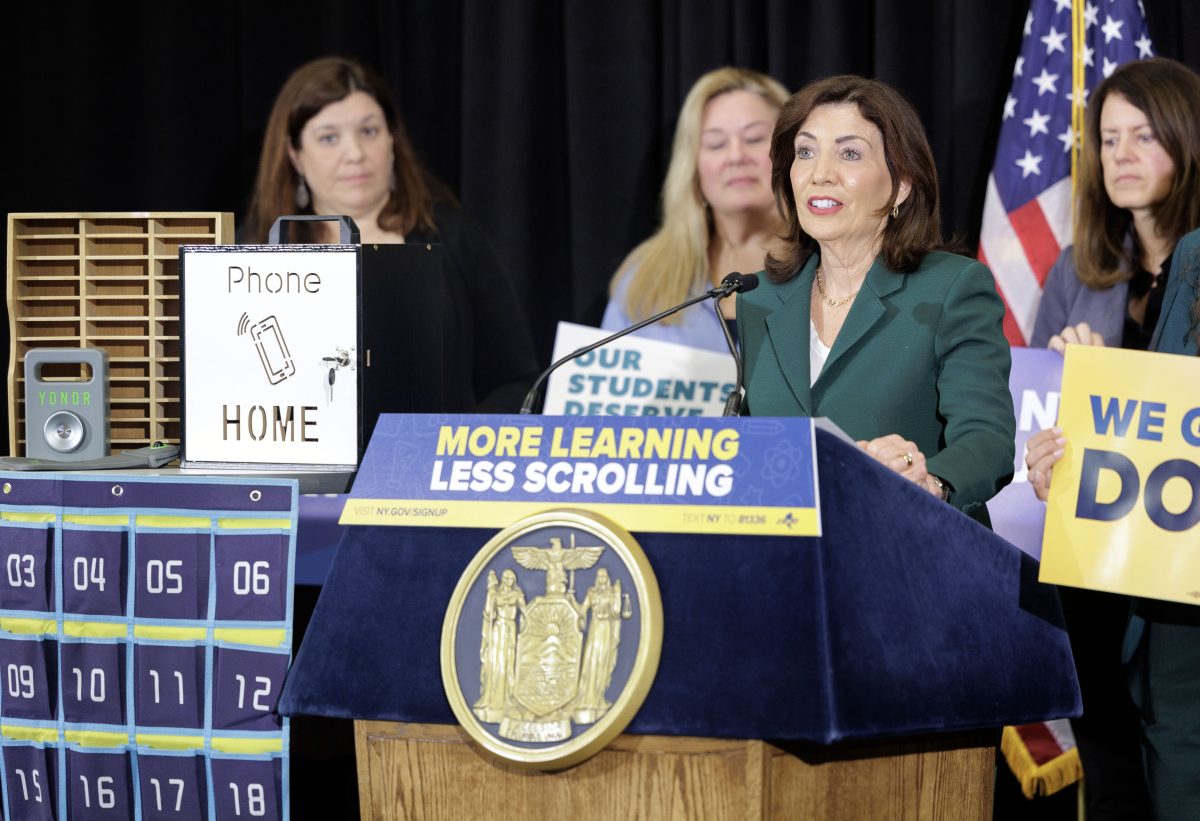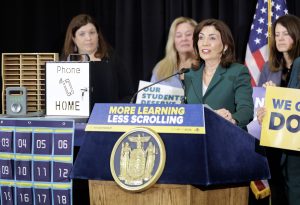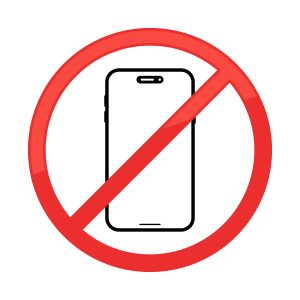Zellnor Myrie, the Brooklyn-Born Reformer Running to Rebuild NYC
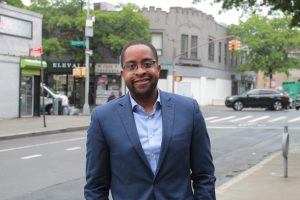
By MOHAMED FARGHALY
mfarghaly@queensledger.com
Zellnor Myrie still rides the subway—not as a campaign prop, but because it’s how he’s always gotten around. One recent evening, as he waited on a platform, a fellow rider recognized him. There were no cameras, no staffers, just a brief exchange and a quiet thank-you. “That’s the kind of interaction that keeps me grounded,” Myrie says. Now a State Senator and one of New York City’s leading mayoral candidates, Myrie is running on a promise to rebuild a city that feels increasingly out of reach for working families. His campaign is rooted in the everyday experiences of New Yorkers — shaped by the same commutes, rent hikes, and after-school pickups — and driven by bold, progressive solutions to make the city more affordable, more just, and more livable for all.
Born and raised in a rent-regulated apartment in Brooklyn to Costa Rican immigrant parents, Myrie is hoping to ride a wave of progressive momentum from Albany to City Hall. The 37-year-old state senator, a Fordham graduate and product of New York City’s public schools and after-school programs, says his lived experience gives him a clear-eyed perspective on the city’s most urgent crisis: affordability.
“I’m living the struggle,” Myrie told the Queens Ledger during a recent roundtable interview. “I have student loans like everyone else. I take the train. I know what it’s like to watch friends leave this city because they can’t afford to stay.”
Myrie, first elected to the State Senate in 2018, quickly made a name for himself as a forceful advocate for tenant protections, criminal justice reform, and gun safety. In his first legislative session, he helped pass a suite of landmark reforms, from the Reproductive Health Act to the Climate Leadership and Community Protection Act. Since then, he’s sponsored more than 60 bills that have become law, earning him praise from progressive groups and legislative colleagues alike.
Now, he’s turning that track record into a campaign for mayor — anchored by a sweeping housing proposal he calls Rebuild NYC, which aims to deliver one million new homes over the next decade.
“I am excited about this opportunity to lead the city that my parents came to 50 years ago, but that opportunity that they came for that’s slipping away for a lot of us,” Myrie said. “I want to change all of those things, and I believe that I have the record, and I’m the right person to do that at this moment.”
Under Rebuild NYC, Myrie would rezone Midtown to allow for 85,000 mixed-income units and use city tools like mandatory inclusionary housing to build and preserve 1 million homes — 700,000 new, 300,000 preserved. The plan also secures permanent revenue for the city’s public housing authority, NYCHA, and would phase out councilmember veto power over land-use projects, a long-debated political bottleneck to construction.
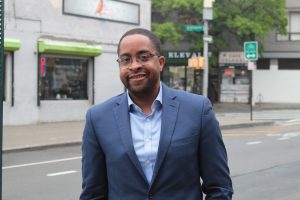
His passion for public service began early. “The best mayor we’ve had was La Guardia — someone who spoke his mind and fought for all New Yorkers,” he said. Myrie’s journey started with community board meetings and escalated through law school, a stint in the City Council, and finally the State Senate.
He often thinks back to his own childhood — how a public school education, after-school programs, and a stable apartment gave him a foundation. He wants every child in New York to have that same chance. His universal after-school proposal — extending care from 2:30 p.m. to 6 p.m. — would cost billions, but Myrie argues the tax revenue from families staying in the city would offset the price.
“As I mentioned, I’m the product of an after-school program, but you shouldn’t have to be in a neighborhood where you have a PTA that can afford this programming to be able to benefit from that,” Myrie said. “Every kid should have access to it, and it should be high quality. We cannot be a city where you cannot afford to raise a kid here.”
On public safety, Myrie walks a fine line. He proposes a stronger presence in subways, but favors reallocating officers to platforms and train cars, backed by 150 police-clinician teams. His approach to crime is deeply shaped by personal experience, including a mass shooting at a Brooklyn parade last year. He wrote the nation’s first law holding gun manufacturers accountable and was named “Gun Sense Lawmaker of the Year” by Everytown for Gun Safety in 2021.
Myrie is clear-eyed about the fiscal challenges the city faces. He opposes raising property taxes unless absolutely necessary, and says the city has already missed its window to bolster reserves before federal cuts hit. But he’s firm on protecting the city’s social infrastructure: after-school care, summer youth jobs, and safe housing.
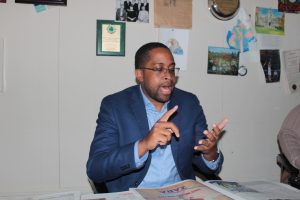
Myrie is running against seasoned insiders and political veterans but makes the case that he brings a different kind of experience — one rooted not in decades of power but in firsthand knowledge of what it takes to stay in the city.
“The same folks responsible for our current problems shouldn’t be the ones trusted to fix them,” he says. “We need to do big things again. If we could build the Empire State Building in 13 months, we can build a city people can afford to live in.”
Zellnor Myrie envisions a transformed New York City after four years under his leadership. His promise is clear: a city where every child has access to high-quality after-school programs, where every young person who seeks a summer job can find one, where people feel safe on the street and subway and where the cost of living is lower, making it more affordable for families to stay. With a focus on safety, fairness, and opportunity, Myrie’s vision is one of inclusivity and resilience, where the city’s social infrastructure is robust and accessible for all. He believes that through bold, progressive actions, New York can once again be a place where working families thrive, and where the opportunities his parents came to the city for are restored and expanded for future generations.





